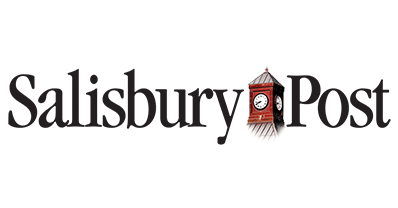
It’s tip-off time for mobile sports gambling in North Carolina: Some wager the state may not be ready for what comes next.
Published 12:05 am Wednesday, March 13, 2024
By Clayton Henkel
NC Newsline
North Carolinians wanting to place a wager on their favorite basketball team during this week’s ACC tournament will have no problem finding someone willing to take their money. Starting Monday, online sports gambling is legal in the Tar Heel state.
Sportsbooks like DraftKings, FanDuel, ESPN BET and others have saturated the screens and airwaves in recent weeks to lure eligible North Carolinians to their respective platforms.
It’s a remarkable feat since it was one year ago this month that Rep. Jason Saine (R-Lincoln) introduced House Bill 347 (titled Sports Wagering/Horse Racing Wagering) and began working both sides of the aisle with more than 50 Republican and Democratic co-sponsors to ensure a win in the ’23 session.
“We know that there’s about $4 billion being bet in our state right now from North Carolinians, but that’s leaving our state,” Saine said in persuading his colleagues to join the other states that have authorized legal sports gambling.
Joined by representatives from professional sports organizations, Gov. Roy Cooper signed the legislation into law in June 2023, saying that the measure will attract capital to the state and create many good-paying jobs.
“This legislation allows the state of North Carolina to regulate it and to put safeguards on it,” said Cooper at the bill signing.
The North Carolina State Lottery Commission has issued the eighth interactive sports wagering operator licenses in advance of this week’s launch.
With new revenue comes new headaches
One safeguard that is in place requires the person placing the bet be at least 21 years old and physically in the state. The state Department of Health and Human Services will receive $2 million to address problems associated with gambling. The department has set up a Problem Gambling Program (NCPGP) to provide education, outreach and treatment services throughout North Carolina.
Dr. Michelle L. Malkin is the director of the new Gambling Research and Policy Initiative at East Carolina University in Greenville, N.C.
Malkin tells NC Newsline that legal gambling has existed for some time at casinos in the western part of the state, but now residents will have the ability to do in-person wagering at many sports venues as well as from the comfort of their own home.
And while those under 21 can’t gamble, it may influence how they see their favorite team.
“It’s a little unfortunate, especially for young people who are kind of building their love for the game, to see that it is more than just a game in the sense that everybody’s wagering on it and people aren’t just loving the sport anymore,” said Dr. Malkin.
To be a spectator today for a lot of people means placing a wager on your favorite team.
“They feel like they have more buy-in behind what happens, but also that means that people feel more loss when their team loses, and that can result in negative things that can happen,” Malkin said.
Both pluses and minuses
Another person who shared his qualms about this new landscape is University of North Carolina System President Peter Hans, who oversees the state’s 16 public universities and the NC School of Science and Math.
“I was a young man once too and impulsive and not always thinking as clearly,” said Hans in acknowledging the lure sports wagering might hold for some young adults.
On the plus side, Hans said the legislation will provide revenue to athletic programs at 13 of the state’s universities, which will lessen the reliance on student athletic fees and the need to raise those fees.
Some of the same worries about gambling addiction were raised when North Carolina enacted a state lottery. But this form of gambling will be more accessible with the vast majority of students having a smartphone with them at all times.
“I’m not convinced all this is for the positive in terms of societal impact,” said Hans. “I am concerned about our college students, particularly when they spend so much time, an inordinate amount of time on screens. They’re used to video, social media, etc. They’re advertising a great deal through that.”
Hans believes student health professionals will likely have a role in working with the state’s lottery commission as sports betting grows and evolves to help avoid compulsive gambling.
“But I don’t have an answer. And I am worried about it,” Hans said in an interview with NC Newsline.
Chasing a win
Dr. Malkin said research shows that the brains of adults under the age of 25 aren’t fully developed yet, and as a result these individuals are often less risk averse.
“So, they can be really swayed by some of this language, especially if they learn about somebody who had a big win,” Malkin explained.
But gambling addiction can spiral into very real problems. One in five people with a gambling disorder will attempt suicide, said Malkin.
The goal is to ensure that people who choose to gamble do so in a healthy way.
She believes North Carolinians must also understand the system is set up to benefit the gaming industry.
For the state, the legislature’s fiscal research division estimates total sports wagering tax and fee revenue of $74.9 million in its first fiscal year.
“I do I think that it’s really important that people see gambling as a form of entertainment. The same way they would go into a movie or eat out for a meal, they budget it in and when that budget is used up that’s when you stop gambling.”
Malkin also recommends North Carolinians really keep track of how much they’re winning versus how much they’re losing.
“A win doesn’t mean the next win is right around the corner.”